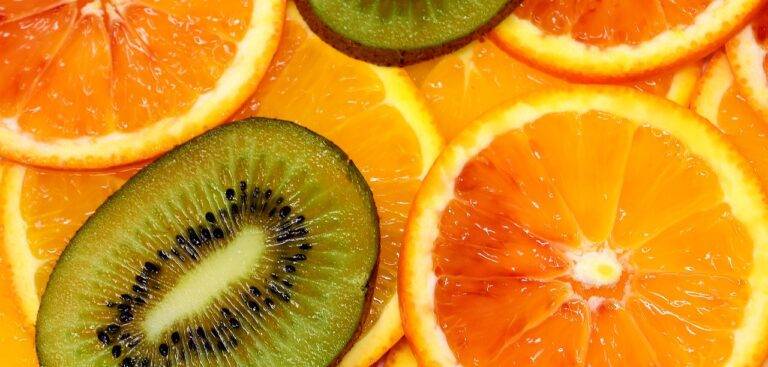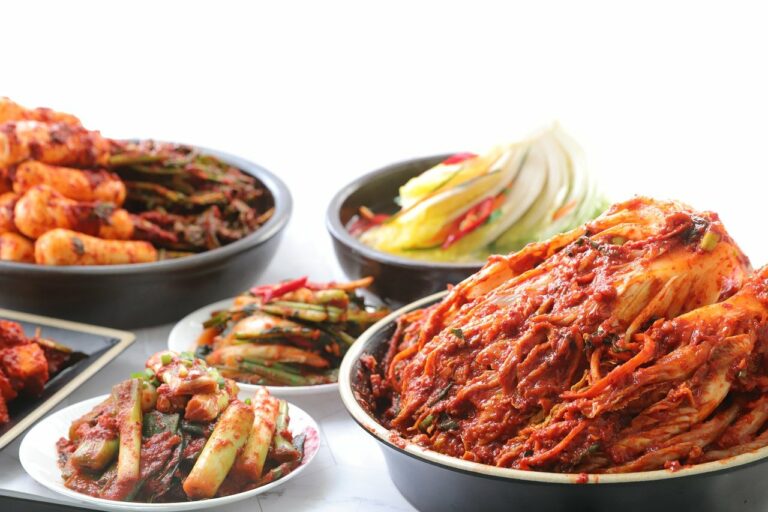Exploring the Health Benefits of Traditional Asian Fermented Foods: Kimchi, Miso, and More
Kimchi, a traditional Korean dish made from fermented vegetables such as cabbage and radishes, is renowned for its numerous health benefits. One of the key advantages of consuming kimchi is its probiotic content, which promotes a healthy gut microbiome. The beneficial bacteria found in kimchi can help improve digestion and boost the immune system by balancing the gut flora.
In addition to its probiotic properties, kimchi is also a rich source of vitamins and antioxidants. The fermentation process of kimchi enhances the bioavailability of nutrients, making it a nutrient-dense food. Kimchi is particularly high in vitamins A and C, which are essential for maintaining healthy skin, supporting the immune system, and promoting overall well-being. Its antioxidant content helps to reduce inflammation in the body and protect against oxidative damage.
The Science Behind Fermented Foods
Fermented foods are products that have undergone the process of fermentation, which involves the use of bacteria, yeast, or other microorganisms to break down sugars and produce compounds like lactic acid. This transformation not only enhances the flavor and texture of the food but also leads to an increase in certain beneficial nutrients, such as vitamins and probiotics.
The science behind fermentation lies in the microbial activity that occurs during the process. As microorganisms feed on the sugars in the food, they release enzymes that help break down complex molecules into simpler forms. This breakdown not only helps in increasing the digestibility of the food but also promotes the growth of beneficial bacteria that can positively impact gut health.
• Fermented foods are products that have undergone the process of fermentation
• Fermentation involves the use of bacteria, yeast, or other microorganisms to break down sugars and produce compounds like lactic acid
• This transformation enhances the flavor and texture of the food
• Fermentation leads to an increase in certain beneficial nutrients such as vitamins and probiotics
The science behind fermentation is rooted in microbial activity. Microorganisms feed on sugars in the food, releasing enzymes that break down complex molecules into simpler forms. This breakdown not only increases digestibility but also promotes the growth of beneficial bacteria that can improve gut health.
Nutritional Value of Miso
Miso, a traditional Japanese condiment, is not just valued for its savory umami flavor but also for its impressive nutritional profile. This fermented soybean paste is a rich source of essential nutrients such as protein, fiber, vitamins, and minerals.
Furthermore, miso is known for its probiotic properties, which can promote gut health and strengthen the immune system. The fermentation process involved in making miso helps to increase the bioavailability of nutrients, making it easier for the body to absorb and utilize them.
What are some health benefits of miso?
Miso is rich in probiotics, which are beneficial for gut health. It also contains antioxidants, vitamins, and minerals that can help boost the immune system and improve digestion.
How is miso made?
Miso is made by fermenting soybeans with salt and a fungus called koji. The mixture is then left to ferment for several months to several years, depending on the desired flavor and consistency.
What is the science behind fermented foods like miso?
Fermented foods like miso undergo a process called lacto-fermentation, where natural bacteria feed on the sugars and starches in the food, creating lactic acid. This process not only preserves the food but also enhances its nutrient content.
What is the nutritional value of miso?
Miso is a good source of protein, fiber, vitamins (such as B vitamins), and minerals (such as manganese, zinc, and copper). It is also low in calories and fat, making it a healthy addition to a balanced diet.
Can miso be included in a vegetarian or vegan diet?
Yes, miso is a plant-based food that is suitable for vegetarian and vegan diets. It can add depth of flavor and nutrients to vegetarian and vegan dishes.







